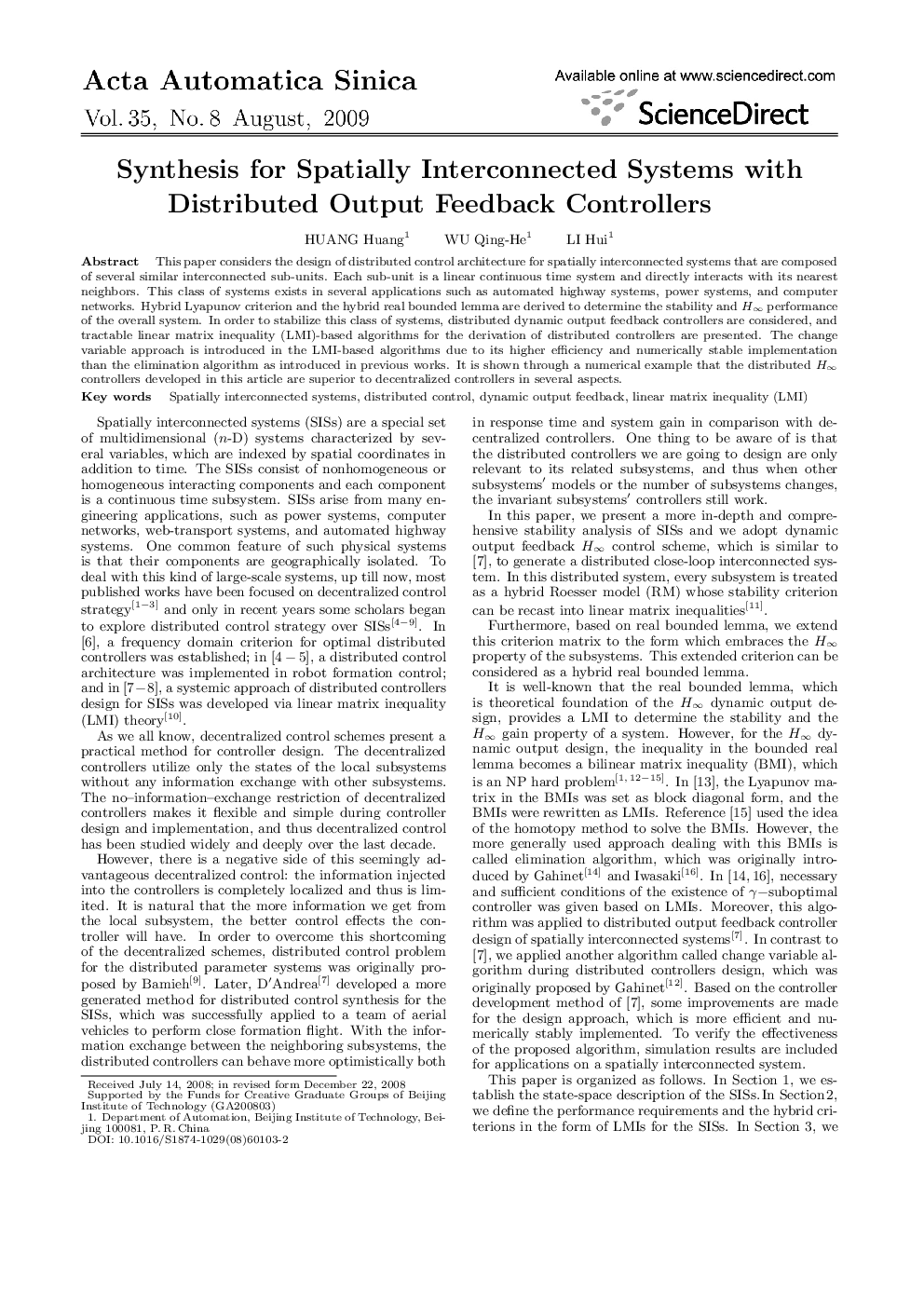| Article ID | Journal | Published Year | Pages | File Type |
|---|---|---|---|---|
| 694578 | Acta Automatica Sinica | 2009 | 8 Pages |
This paper considers the design of distributed control architecture for spatially interconnected systems that are composed of several similar interconnected sub-units. Each sub-unit is a linear continuous time system and directly interacts with its nearest neighbors. This class of systems exists in several applications such as automated highway systems, power systems, and computer networks. Hybrid Lyapunov criterion and the hybrid real bounded lemma are derived to determine the stability and H∞ performance of the overall system. In order to stabilize this class of systems, distributed dynamic output feedback controllers are considered, and tractable linear matrix inequality (LMI)-based algorithms for the derivation of distributed controllers are presented. The change variable approach is introduced in the LMI-based algorithms due to its higher efficiency and numerically stable implementation than the elimination algorithm as introduced in previous works. It is shown through a numerical example that the distributed H∞ controllers developed in this article are superior to decentralized controllers in several aspects.
